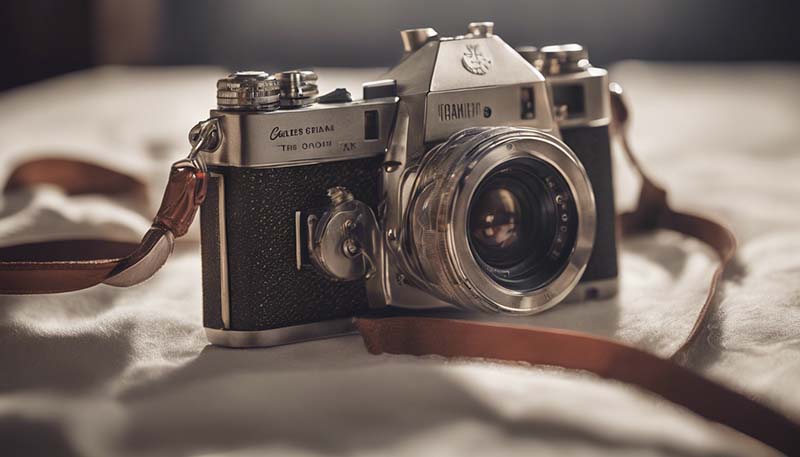Heritage Brands: The Timeless Appeal of Classic Fashion
Heritage Brands: The Timeless Appeal of Classic Fashion
Fashion is a form of self-expression and a reflection of one's personal style. It has evolved over the centuries, with trends coming and going at an ever-increasing pace. However, amidst the ever-changing landscape of fashion, there exists a category of brands that stand the test of time – heritage brands. These brands have a rich history, often spanning decades or even centuries, and they continue to resonate with consumers because of their classic designs, quality craftsmanship, and the stories they tell.
The Essence of Heritage Brands
Heritage brands embody a unique blend of tradition and modernity. They are characterized by:
- Historical Significance: Many heritage brands have played a role in shaping the fashion industry and have been associated with significant historical events or cultural movements.
- Quality and Craftsmanship: These brands are known for their high-quality materials and meticulous attention to detail, often using traditional techniques that have been passed down through generations.
- Timeless Design: Heritage brands offer classic designs that transcend trends, making their products relevant across different eras and styles.
- Cultural Relevance: They often have a deep connection to the culture and heritage of the region or country they originate from, which adds to their appeal.
- Storytelling: Each heritage brand has a story to tell, often rooted in the brand's founding principles, history, and the people behind it.
The Allure of Timelessness
There are several reasons why heritage brands continue to hold a special place in the hearts of consumers:
Advertisement
1. Quality Over Quantity
Heritage brands prioritize quality over quantity. They focus on creating products that are durable, well-made, and designed to last. This approach not only reflects a commitment to sustainability but also resonates with consumers who value longevity and functionality in their fashion choices.
2. Emotional Connection
Many people develop an emotional connection with heritage brands, often passed down through generations. These brands evoke a sense of nostalgia and tradition, and their products can become family heirlooms or cherished personal items.
3. Investment in Craftsmanship
Heritage brands invest heavily in craftsmanship, often employing skilled artisans who use traditional techniques to create their products. This level of care and attention to detail is evident in the final product, making it a worthwhile investment for many consumers.
4. Cultural Identity
Heritage brands often serve as ambassadors of their cultural heritage, showcasing the unique qualities and characteristics of their country or region. This cultural identity adds depth and meaning to their products, making them more than just items of clothing or accessories – they become symbols of heritage and tradition.
5. Storytelling
The stories behind heritage brands are often as compelling as their products. These narratives can range from tales of innovation and entrepreneurship to stories of social and cultural significance. This storytelling element adds a layer of intrigue and fascination, making consumers feel more connected to the brand and its products.
Examples of Heritage Brands
There are numerous heritage brands across the globe, each with its own unique story and appeal. Here are a few examples:
1. Burberry (UK)
Established in 1856, Burberry is a quintessential British brand known for its iconic trench coats. The brand has a long history of innovation, including the invention of gabardine, a weather-resistant fabric that revolutionized rainwear. Today, Burberry continues to blend tradition with modernity, offering a range of classic and contemporary products.
2. Levi's (USA)
Founded in 1853, Levi's is an American brand that has become synonymous with denim. The company introduced the first blue jeans in the late 19th century, and its products have been a staple of American fashion ever since. Levi's continues to innovate while maintaining its commitment to quality and craftsmanship.

3. Gucci (Italy)
Gucci was founded in 1921 in Florence, Italy, and has since become one of the most recognizable luxury brands in the world. Known for its opulent and extravagant designs, Gucci has a rich history of innovation and has played a significant role in shaping the fashion industry. The brand's heritage is evident in its collections, which often draw inspiration from its archives.
4. Rolex (Switzerland)
Rolex, founded in 1905, is a Swiss luxury watchmaker that has earned a reputation for its precision, reliability, and craftsmanship. The brand has a long history of innovation, including the development of the first waterproof wristwatch. Rolex watches are sought after for their timeless design and the brand's commitment to excellence.
Conclusion
Heritage brands offer a unique blend of history, quality, and style that sets them apart from other fashion brands. They provide consumers with more than just clothing or accessories – they offer a connection to the past, a celebration of craftsmanship, and a sense of cultural identity. As the fashion industry continues to evolve, heritage brands will likely maintain their appeal, offering consumers a timeless and enduring option in a world of ever-changing trends.
Acknowledgment: The images used in this article are for illustrative purposes only and do not constitute endorsement or affiliation with the brands mentioned.
 2024-07-27
2024-07-27 56 Comments
56 Comments